The Manx Cat is the perfect pet for anyone looking to adopt a cat with a unique personality and appearance. Not only do these cats have rounded contours reminiscent of bowling balls, but they are also tailless, giving them an interesting silhouette!
But the Manx is far more than just a cute cat without a tail. Their long hind legs make them hop adorably. This is why some consider this breed the ‘bunny cat’.
By providing your Manx with the proper care and attention, you can ensure that they lead a long and happy life full of love and companionship! This is why we made this care guide for you!
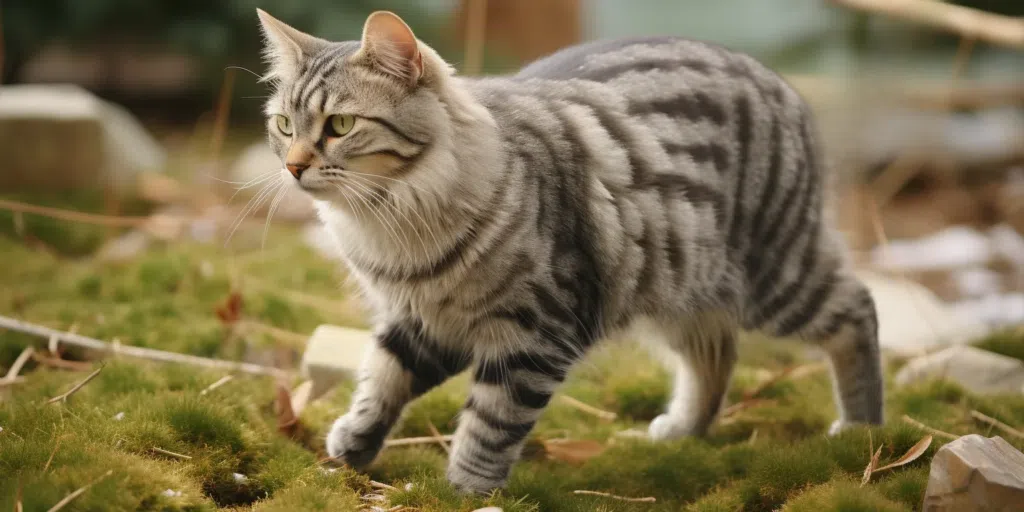
Breed Overview
The Manx is a unique breed of cat, distinguished by its taillessness. This cat is an ancient breed of feline that takes its name from the Isle of Man, a small British island located in the Irish Sea.
The breed has been dated back to at least 1750, but it is unclear if they were born with this trait or arrived via ship and spread throughout the island.
They come in both long-haired and short-haired varieties as well as many colors and patterns. Both CFA (Cat Fanciers Association) and TICA (The International Cat Association) recognize them for championship status among pedigreed cats.
Manx cats are known for their intelligence, curiosity, and playful nature. On top of that, they do not require much grooming due to the lack of an undercoat. This makes this breed very desirable in the cat-keeping world.
Manx has a higher likelihood for some conditions such as joint problems. This is due to their uneven front and back legs.
Identifying Manx Cat
The Manx breed is known to have a striking appearance due to the lack of a tail. This feature is the most obvious characteristic, however, they also have an incredibly round body shape and unusually long hind legs. They also have arched backs and round heads with round cheeks that give them a sweet expression.
Also because of the structure of this breed, it is important to handle them with care. This is due to the unique body shape.
Manx cats come in a variety of colors and patterns that range from deep black to creamy white. Their fur can be a solid shade, such as chocolate or cinnamon, or they can have combinations of different colors like red and fawn.
Some Manx cats also have patches of silver or smokey grey running through their coats. No matter what color combination you choose, these beautiful felines will make an eye-catching addition to your home!
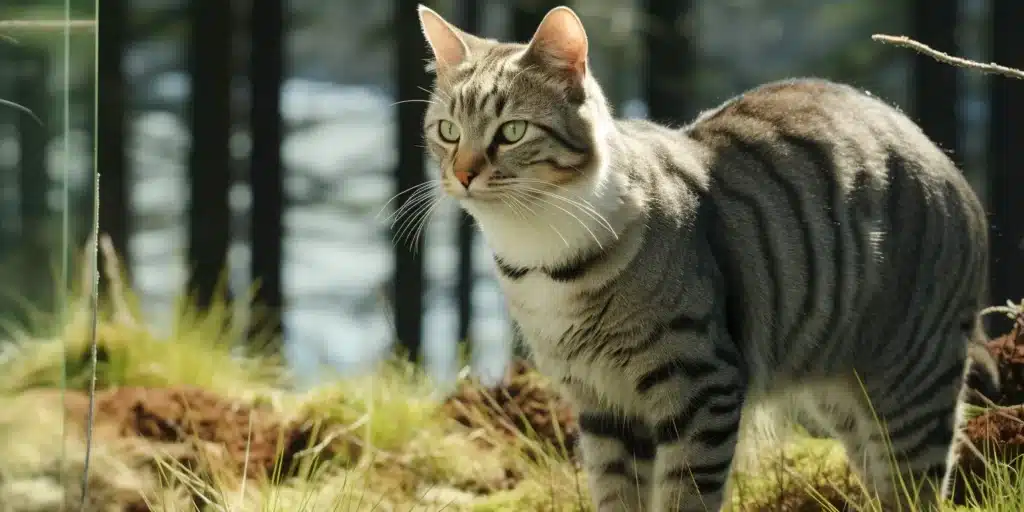
Personality Traits
The Manx is a loyal companion, forming strong bonds with their families and providing endless affection. Their even-tempered demeanor and gentle nature make them perfect for families as well.
They are very intelligent cats, quickly learning how to use their paws to turn door handles and retrieve toys just like a dog would do. These cats have a relatively quiet voice but can be quite talkative. They often use a unique trilling sound that makes them endearing to their owners.
Manx will show affection towards its owners by following them around the house, sitting on laps, or perching next to them while they watch TV. They are playful cats too; thanks to their powerful hindquarters they can jump high enough to reach the highest corners of your home.
This breed of cat is inventive too; finding creative ways of entertaining themselves throughout the day. Whether it’s curling up inside boxes or bags or playing hide-and-seek behind furniture these cats always keep themselves busy.
However, you should not leave them alone for a long time they can become bored. This means you should give them enough time or you should bring home another pet to play with your Manx.
This cat breed is a great choice for families with children or other pets. They are known to be very playful and love chasing balls or playing fetch like a dog. As long as the children treat them with respect, they will get along just fine!
When introducing the Manx to other animals, it’s important to do so slowly to ensure that they all learn how to get along together. The active Manx will typically have no problem living peacefully alongside cats and dogs who respect his authority.
However, if you have birds or fish in the home it might be best for the Manx not to interact with them too much as he may not be able to resist pouncing on them! They have robust hunting skills that come from generations of islands living on the Isle of Man.
Activity Level
Manx are incredibly active cats that sprint into the house to explore and play. They tend to “fly” through the house with sharp turns and quick stops. They’re excellent jumpers who can get up high to investigate things that have piqued their interest.
Manx are also intelligent and love being challenged with puzzles and tricks to learn. Playing fetch and carrying around toys is also common behavior for this breed.
Manx Cat Loyalty
Manx cats are very loyal which is a trait rarely found in felines. Not only will they remain loyal to their owners, but they will also show love and affection towards them every day.
They are devoted to their owners and often follow them around the house. They also love to snuggle up to their owners whenever they can and often seek out attention.
Manx cats are highly intelligent and form strong bonds with their owners. They are also known to be quite independent and content to spend many hours alone.
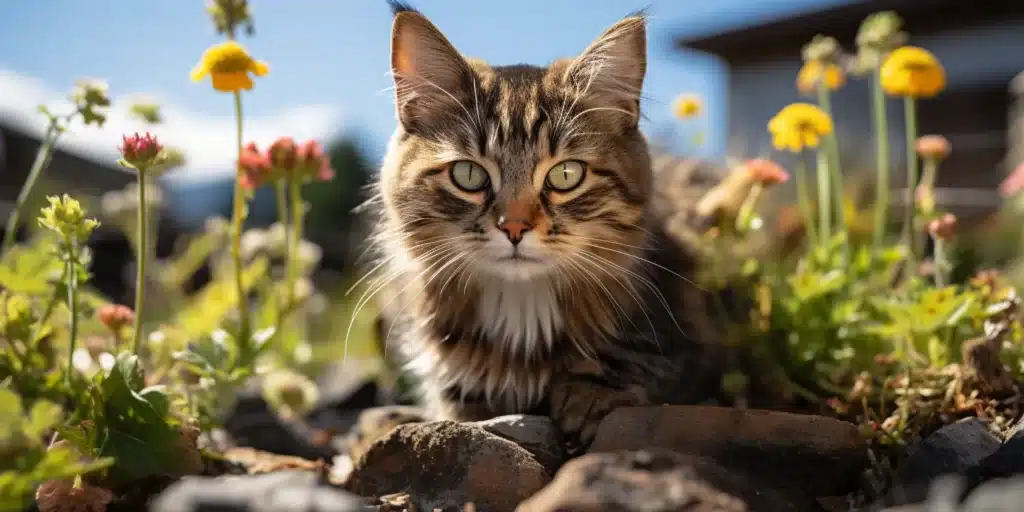
Love Of Water
Manx cats originate from the Isle of Man island; As such, they have developed a special affinity towards the water and swimming in particular. These cats can often be seen enjoying swimming or playing around the water.
The sheer joy they experience when playing in water makes them one of the most delightful breeds to observe as they frolic and splash around happily!
Trainability
The Manx breed is intelligent and easy-to-train cats that will learn basic commands. They are often eager to please, making them a great companion for those looking for an affectionate pet.
With consistent positive reinforcement, they can learn basic commands “Come” or “No” but they can also learn tricks. Manx displays impressive problem-solving skills and enjoys engaging in activities that challenge their minds.
These cats have a gentle disposition and make wonderful family pets to work with. Manx is easily adaptable to different home environments and commands. But keep in mind that they are as independent as any other cat!
Adult Size
The Manx Cat is a medium-sized breed with heavy boning and a compact body. They typically weigh between 8 – 15 pounds and can reach lengths of up to 18 inches. Keep in mind that females are usually smaller than males.
Their height varies depending on the individual cat but generally ranges from 6 to 12 inches. The shortness of their body may cause one to mistakenly think they are overweight.
Because they lack a tail, this breed might look much smaller than it is. Their round body shape is also a contributor to the fact that they are considered medium-sized.
The growth rate of a Manx Cat is quite remarkable. As kittens, they grow at an astonishing rate and can double their size in just two months! While the growth rate slows down after that, these cats are still capable of growing to full size in as little as five or eight months.
During this time it’s important to ensure they have plenty of nutritious food and exercise to facilitate healthy growth.
After reaching full size, the Manx Cat matures and develops muscles until around two years old. Beyond this period, muscle development will continue at a much slower rate and slowly give its way to fat development.
Life Expectancy
The Manx cat is a breed of cat that is known for its long life expectancy. With an average lifespan of 14 – 16 years, this breed of cat can easily outlive many other cats and even some dogs.
While their long life expectancy may be due to their genetics, there are certain things you can do to ensure your Manx reaches its maximum lifespan.
To maximize their life expectancy it’s best to provide them with regular veterinary check-ups and care. This includes making sure all vaccinations are done and ensuring all health issues are caught and treated early.
Similarly, proper nutrition and a safe environment are necessary to ensure their long-term health and safety.
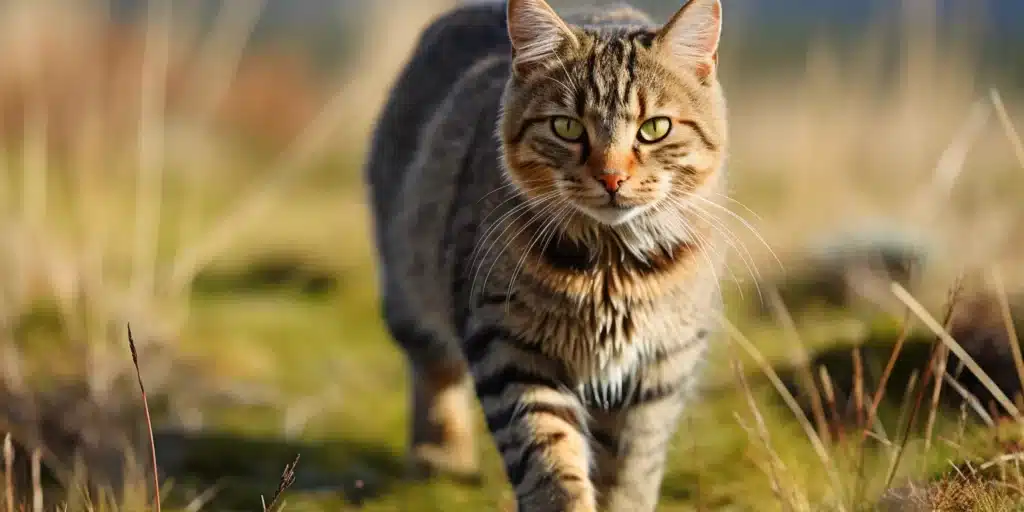
Manx Cat Care
Manx cats are adorable, playful, and affectionate, making them the perfect companion for any cat lover. To ensure your cat is always looking and feeling its best it’s important to provide proper care.
The first step in caring for your Manx Cat is to comb them regularly starting from when they are a kitten. This will help keep their coat glossy and free of tangles or mats irritating the skin.
Be sure to check around the eyes, nose, and ears as these areas can easily become clogged with dirt or debris. If needed, clean them with a warm damp cloth or any cat-safe tissue paper.
Bathing should be introduced early on but many cats don’t require bathing very often so only do this if necessary. Nail trims should also start early on so they don’t develop a habit of scratching the furniture.
Most importantly, brush your Manx’s teeth a few times per week to ensure their oral health. Use a pet toothpaste approved by your vet and give plenty of praise throughout!
Additionally providing a tall scratching post and other toys will help satisfy their natural scratching instinct. This will further help you with protecting your beloved furniture from the curious paws of a Manx.
Diet
Manx cats are obligate carnivores and require a meat-based diet to thrive. A wet meal should be the primary source of their nutrition. This will provide them with the necessary protein and fat that they need.
Twice-daily meals are preferable for these cats. You must keep track of your cats’ weight and adjust their food accordingly.
Grain and veg diets should be avoided at all costs, as Manx cats have no way to use those foods effectively. These can cause digestive issues like constipation or diarrhea. It can also lead to excessive dental tartar which can lead to other health problems down the line.
Treats should only make up 10% or less of your cat’s total caloric intake each day. This is to ensure your pet is getting all the necessary nutrients it needs without becoming overweight.
Always look for high-quality food with minimal ingredients that don’t contain any by-products or fillers. These foods tend to be more expensive but they are worth it considering how important proper nutrition is for your feline friends!
Always make sure you provide them with plenty of fresh water available throughout the day. Dehydration can quickly become an issue for this breed as they don’t show interest in drinking water.
Even with multiple water bowls you still need to give them wet foods to ensure they get their daily water needs. Make sure water bowls are always full (or even consider investing in an automatic fountain). Doing this will encourage your Manx to drink more often.
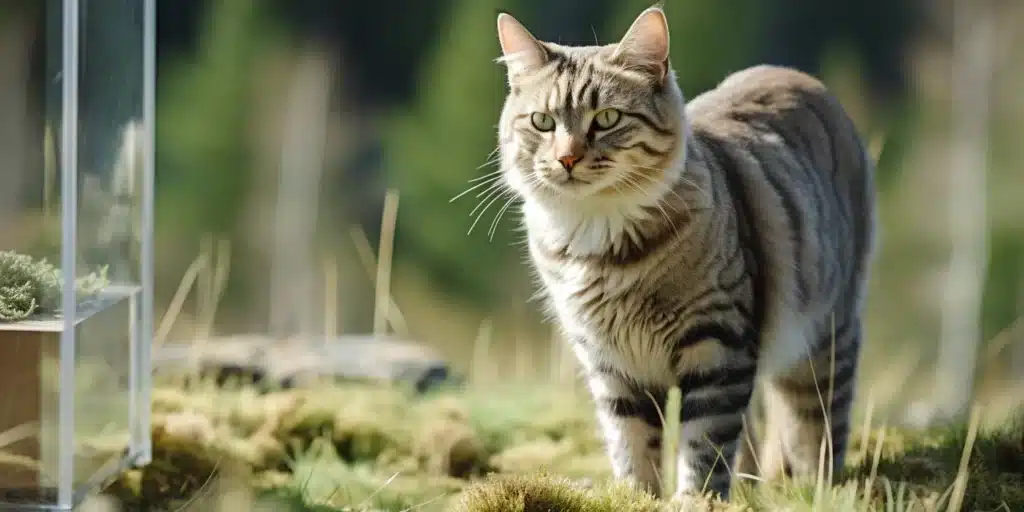
Exercise Requirement
Manx is a playful breed, so it’s important to keep them active with regular playtime. Providing 30 to 60 minutes of designated playtime allows your Manx cat to get the physical activity they need.
Regular exercise helps keep their muscles strong, which can help prevent joint problems such as arthritis in later life. In addition, playing is an excellent way for your cat to relieve stress and stay mentally stimulated. This prevents boredom and potentially destructive behaviors that can result from a lack of stimulation.
Playtime also offers opportunities for you and your furry friend to bond and form a closer relationship with each other. Spending time together will create memories that will last a lifetime.
Shedding Levels
Manx cats are known for their double coat, which can be quite thick and dense. This means that shedding is a regular occurrence, particularly during the spring and fall when the weather changes.
During these seasons, brushing your Manx cat regularly to remove any loose hair is important. This will keep your house neat and clean while they go through their shedding season.
As your Manx cat ages, its shedding habits may change as well. Younger cats tend to shed more often because they’re growing rapidly and their coats need to adjust accordingly. Once adult age is reached, shedding tends to slow down.
However, you should still brush your cat regularly to keep the coat healthy and free of mats or tangles. Senior cats may experience less shedding due to less active lifestyles; however, they still require regular brushing to maintain good skin and fur health.
Health Issues
Manx cats are generally considered to be healthy, however, the gene that makes them tailless can create some health issues. Responsible breeders typically identify and address these in kittenhood.
The most common diseases associated with Manx cats include:
- Lordosis
- intervertebral disc disease
- polycystic kidney disease (PKD)
- Hip dysplasia
- cardiomyopathy
- Eye defects.
Apart from genetics, poor diet, and living conditions can also have a significant impact on a Manx cat’s health. Feeding them an unhealthy diet or not properly caring for them will cause illnesses in the long run.
Overcrowded space or not receiving enough exercise, can also contribute to poor health by creating stress for the cats.

Buying Tips
- Look for a reputable breeder: When you’re looking for a Manx cat, it is important to find a reputable breeder who will provide health and genetic testing on their kittens. A good breeder should be able to answer any questions you have about the breed and provide documentation of veterinary care, vaccinations, and health records. Avoid pet stores or online sellers that don’t have this information available.
- Consider the cost: Manx cats can range from $500-$1800 depending on the pedigree and coloration of the cat. Make sure that you are aware of all costs associated with purchasing a kitten before making your decision as some breeders may charge additional fees for things like registration papers or vaccinations.
- Ask about temperament: Manx cats are known for being loving companions but can also be quite independent at times so it is important to ask your breeder what type of personality traits their kittens typically exhibit before committing to one particular kitten. Also, consider if an adult Manx cat would be better suited to your lifestyle as they tend to bond more quickly than kittens.
You Might Need: 250+ Manx Cat Names to Suit Your Unique Pal

Conclusion
Manx cats are a unique and delightful breed that makes wonderful companions. They have easy-going, playful personalities and make excellent family pets. Their distinctive lack of tail gives them a unique look that is sure to draw attention wherever they go.
These cats can be good with children, other animals, and even strangers; making them well-suited for most families. If you’re looking for an intelligent, loyal companion who will bring lots of fun and love into your home, then the Manx cat should be considered!